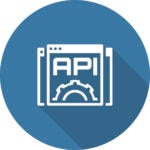The implementation of standardized APIs for banking in the UK begins
In the UK, the Treasury Department is taking the first steps to implement standardized APIs for the banking sector as part of a wider government agenda to ensure that citizens have better access to their consumption data.

The Government has encouraged energy and telecommunications companies as well as utilities to offer consumers better access to their personal data in machine-readable formats (i.e. enable API).
A few days ago the UK government published its “Autumn Statement” which gathers the financial policies for next year and section 1.171 of which reads:
"The government is also announcing support for all alternative finance providers by naming the big banks that will be required to open up access to their credit data and refer on any SMEs that they turn down for finance, and support for fintech firms who want to use bank data to help consumers and small businesses make better decisions.
Gocompare are the first comparison website to commit to launching a Midata current account tool, and intend to make the service available from 1 April 2015. Building on this, the government is keen to enable more innovation around bank data and will launch a Call for Evidence on how to deliver standardised Application Programming Interfaces in the banking industry”.
Analysts have been warning for some time that banking is facing disruptive forces that are winning the race. For example, the prediction made by Kristin Moyer, from Gartner, was this: "nonbank APIs from Amazon, PayPal, Zillowand others are 2 to 5 years ahead of retail and commercial banking APIs. Continuing on a path of isolation will lead to dwindling market opportunities and customer irrelevance for banks.”

In Moyer's opinion, we must view open banking as a self-service for the “discovery, provisioning and creation of new business models and services by ecosystems inside and outside the bank: APIs, apps and their respective app stores, developer/partner ecosystems and other technologies provide CIOs with the ability to enable mobility and innovation; they increase product and service accessibility.” Her article also contains a valuable reflection: “Digitalization is blurring the boundaries between industries to the point that some will cease to exist. Will banking be one of them? Anyone can build a bank. For example, peer-to-peer lending turns everyone into a bank.”
But analysts do not preach in the wilderness, and changing trends are starting to emerge. Last November Barcelona hosted the International Predictive API and Analytics Conference, and at it Marc Torrens (Strands) claimed that APIs allow companies to create recommendation engines based on data available through banking APIs and the BBVA Chairman himself, Francisco González, has already noted that precisely this large amount of (financial and non-financial) data that banks accumulate are to their great advantage for the future, in this new scenario of competition from non-banks.
Paddy Ramanathan, managing partner of Digital Confluence, maintains that the implementation of these APIs provides four clear opportunities for banks:
● Its developer community will expand, allowing banks to scale their innovation and create new products.
● Monetized APIs and data will represent a significant source of revenue (industry sources speak of 300 billion dollars a year).
● “Distribution of services will become ubiquitous": banks will be able to leverage third-party applications to serve end customers wherever they are.
● Open APIs will enable better fraud detection and monitoring of suspicious activity, thus reducing both costs and the overall risk in the banking system.